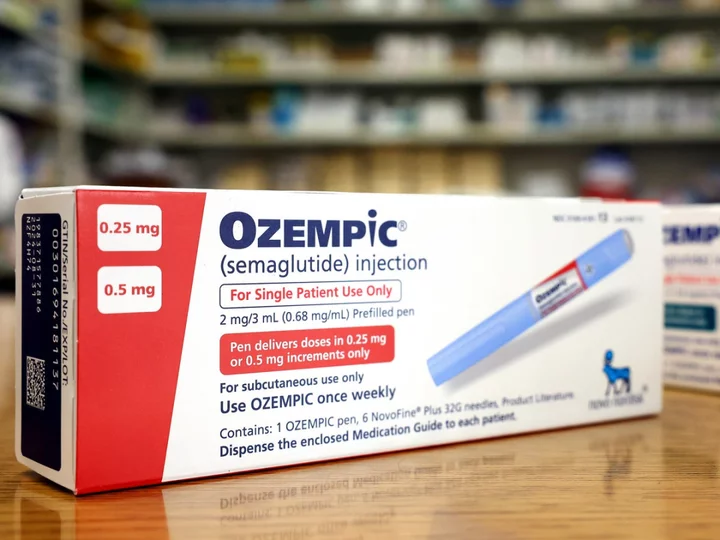One of the scientists whose work pioneered the development of medications such as Ozempic and Wegovy has revealed why life may become “so miserably boring” after two years of using the drug.
Ozempic is an FDA-approved medication used for the treatment of type 2 diabetes. It works by mimicking a hormone called glucagon-like peptide 1 (GLP-1), which regulates blood sugar levels and slows down the rate at which food leaves the stomach, often creating the feeling of fullness.
These semaglutide injections – sold under the brand names Ozempic and Wegovy – have soared in popularity as many people, including Hollywood celebrities, have used it for weight loss. What’s more, people have also found Ozempic has been effective in curing their addictive habits, like drinking, smoking, shopping, or nail biting.
However, because of Ozempic’s increasing popularity, it has led to national shortages of the type 2 diabetes treatment – leaving those who actually need it without.
In an interview with Wired, professor Jens Juul Holst – who received the Warren Alpert Foundation Prize in 2021 for his work developing treatments based on the GLP-1 hormone – spoke about the effects of Ozempic, and why he believes many people will stop taking the medication after just a few years.
“What happens is that you lose your appetite and also the pleasure of eating, and so I think there’s a price to be paid when you do that,” Holst told Wired. “If you like food, then that pleasure is gone. The craving for food for some people is taken away when they take GLP-1 drugs.”
He continued: “That may eventually be a problem, that once you’ve been on this for a year or two, life is so miserably boring that you can’t stand it any longer and you have to go back to your old life.”
Holst added that medications like Ozempic and Wegovy have been on the market since 2005, though studies show that these people don’t stay on them for very long.
“It’s just like every other drug, they don’t stay on it for many reasons,” he explained. “One of the reasons, as I said, is that once you have tried it and you realise you’ve lost interest in food, then that may be enough.”
“We don’t know why people stop taking these drugs, but we know for a fact that they do stop. They do that all over the world.”
A 2020 study found that 70 per cent of people who took GLP-1 drugs for type 2 diabetes stopped taking them within two years.
However, this could pose a problem for many patients taking semaglutide injections. Research has found that people who stopped taking Ozempic or Wegovy for weight loss experienced weight rebound. A trial published in April 2022 saw participants gain back two thirds of the weight they had lost after 68 weeks of taking semaglutide.
As for celebrities who use the once-weekly injection for weight loss, despite not having diabetes or clinical obesity, Hans instead called attention to the “many terrible problems” that those with diabetes have struggled with by not having drugs like Ozempic readily available.
“Have you ever visited a diabetes hospital? It’s really deplorable,” he said. “People come in with amputated limbs and compromised cognitive functions and heart problems or they can barely move – they’re miserable and depressed. It’s really serious. There is so much you can improve with a drug that is not only a weight-loss drug but is also an anti-diabetic.”
Amidst the popularity of semaglutide injections, the US Food and Drug Administration has issued warnings for consumers not to use off-brand versions of Ozempic or Wegovy, because they may not include the same GLP-1 hormone used in approved medications.
Earlier this month, agency officials reported problems with patients using compounded versions of semaglutide – which combines traditional semaglutide with other ingredients. These drugs are not FDA-approved, and the agency does not verify the safety or effectiveness of compounded drugs.
Consumers should only use drugs containing semaglutide with a prescription from a licensed health care provider and obtained from a state-licensed pharmacy or other facilities registered with the FDA, the agency said.
Read MoreWhat is ‘Ozempic face’? Doctors warn about facial ageing side effect of diabetes medications
How does Wegovy work? The ‘game changing’ weight loss drug beloved by Hollywood
FDA warns against using off-brand versions of Ozempic, Wegovy for weight loss
Pregnant Stassi Schroeder admits she wants to ‘try’ Ozempic after giving birth
Doctors warn about ‘Ozempic face’ side effect of medications
Amy Schumer says she stopped taking Ozempic because of side-effects









